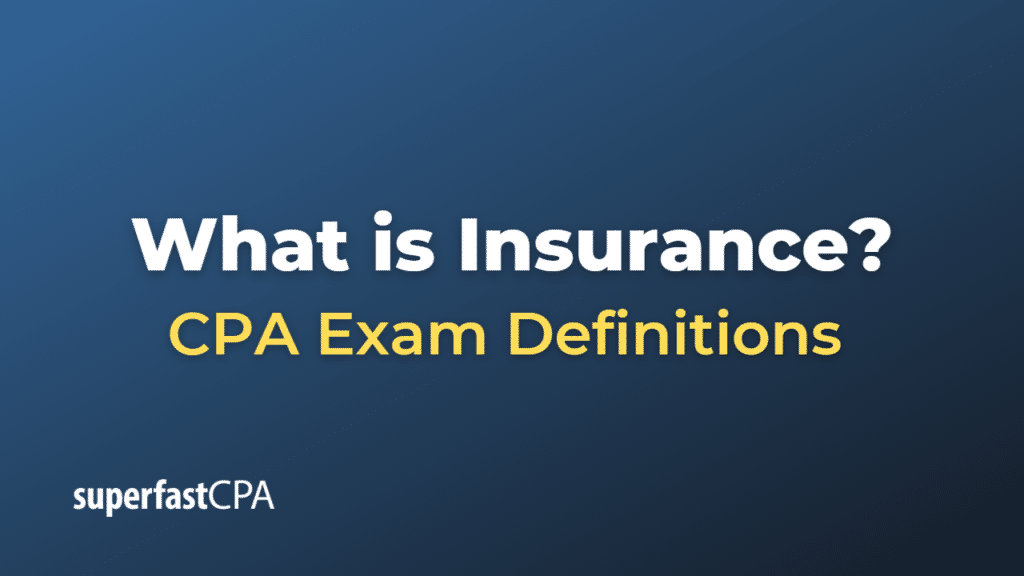Insurance
Insurance is a contract, represented by a policy, in which an individual or entity receives financial protection or reimbursement against losses from an insurance company. The company pools clients’ risks to make payments more affordable for the insured.
Insurance policies are designed to provide coverage for specific types of risks, and the policyholder pays a premium to the insurance company in return for this coverage. The amount of the premium is determined by the insurance company based on the level of risk associated with covering the policyholder, as well as the amount of coverage desired.
There are many types of insurance policies, including:
- Health Insurance: Covers medical expenses resulting from illness or injury.
- Auto Insurance: Provides coverage for damage to or theft of a vehicle, liability for bodily injury, and liability for property damage caused by a vehicle.
- Homeowner’s Insurance: Covers damage to a person’s home, personal property in the home, and liability for injuries occurring on the property.
- Life Insurance: Pays out a sum of money upon the death of the insured to their designated beneficiaries.
- Disability Insurance: Provides income in the event a worker is unable to perform their work and earn money due to a disability.
- Business Insurance: Covers businesses against losses, including those related to property damage, liability, and worker-related injuries.
In general, the main goal of insurance is to provide financial protection against potential future losses. Without insurance, individuals or businesses would need to bear the full cost of any loss they incur. Insurance helps spread out the risk and provides a safety net for these potential financial losses.
Example of Insurance
Let’s consider a simple example of auto insurance.
John has recently bought a new car and he decides to purchase an auto insurance policy to protect against potential financial losses related to the car.
John’s auto insurance policy covers:
- Collision damage: If John’s car gets damaged in an accident, the insurance company will pay for the car’s repair or replacement.
- Liability: If John accidentally injures someone or damages someone else’s property while driving, the insurance company will cover the associated costs.
- Theft: If John’s car is stolen, the insurance company will reimburse him for the value of the car.
In return for this coverage, John pays a premium to the insurance company. The amount of the premium is determined based on various factors, such as the value of the car, John’s driving record, and the amount of his deductible (the amount he would pay out of pocket before the insurance coverage kicks in).
A few months later, John unfortunately gets into an accident and his car is severely damaged. He files a claim with his insurance company, providing them with the necessary details and documentation about the accident.
After reviewing John’s claim, the insurance company agrees that the accident is covered under his policy. They pay for the repairs to his car, minus the amount of his deductible. Without insurance, John would have had to pay for all these costs out of his own pocket.
This example illustrates how insurance works to protect policyholders from financial losses. However, it’s important to note that insurance policies can vary widely in terms of what they cover and how much they cost. Always read the terms of an insurance policy carefully and consider consulting with a professional if you have any questions.













